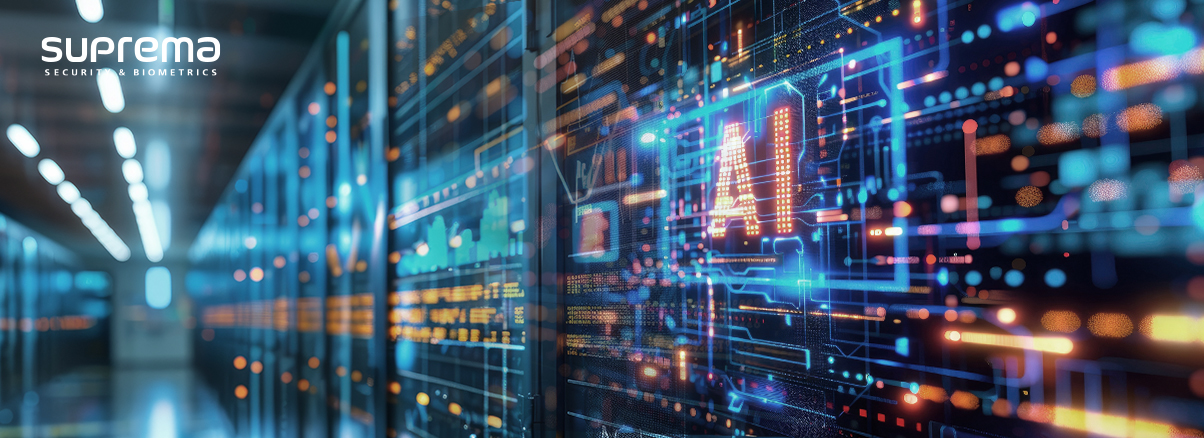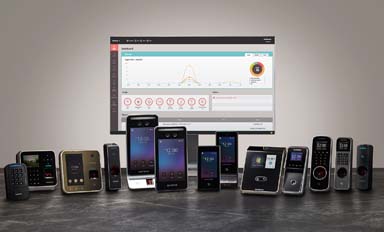- Latest press releases from Suprema

Access control systems integrators face a crucial need to deploy advanced, decentralized solutions due to the rise of edge computing and distributed data centers. This shift toward localized data management enhances the responsiveness and robustness of access control systems, making them more efficient and reliable in security-sensitive environments.
Reducing latency, conserving bandwidth, and fortifying system resilience against disruptions and cyber threats are critical as digital infrastructures evolve. Integrators must adapt their designs to incorporate edge devices capable of autonomous operation within a larger, interconnected security framework.
These configurations ensure continuous operation and integrity of security protocols, particularly where centralized data handling might be compromised. Integrators are tasked with balancing local autonomy with centralized oversight, optimizing both security and operational efficiency.
Edge computing in access control
By situating data processing closer to where it's needed, edge computing decreases delays and cuts down on the need for centralized data centers. This arrangement is particularly useful for access control systems, as it allows them to manage vital authentication and authorization functions directly at the local level.
“Edge computing enables local data processing near the source of data generation, reducing latency and dependence on centralized data centers,” said Hanchul Kim, CEO of Suprema. “In access control, edge devices can perform initial authentication and authorization locally, ensuring quick response times and continued operation even if connectivity to the central server is lost.”
Even in scenarios where connectivity to a central server is disrupted, these edge devices can maintain operational continuity, ensuring that access control remains uncompromised.
Innovations in localized security management
Leading companies in the access control industry have embraced this paradigm shift by developing high-performance edge AI devices capable of running sophisticated algorithms locally.
These devices, equipped with advanced AI processors like the Neural Processing Unit (NPU), are tailored to execute these algorithms efficiently, maintaining high performance without the risks of overheating or slowing down.
“Suprema has adopted highly advanced AI processor, NPU to execute AI algorithms with higher efficiency and performance,” Kim said. “A standout feature of Suprema's edge AI technology is its ability develop AI algorithm independently and create lightweight AI engines optimized for its own edge device. This technology ensures efficient handling of vast datasets while preventing overheating and slowdowns in hardware. Suprema offers the most reliable embedded AI technology, delivering high efficiency and performance in AI-based access control solutions.”
One of the pioneering solutions in this space includes devices that not only perform fingerprint recognition and facial authentication but also operate as master devices within a network. In this configuration, they manage and control other connected devices (slave devices), processing and making decisions based on the data collected.
This approach allows for integrated security management across various locations without depending on a central server, enhancing the system's reliability and responsiveness.
Global identity management meets local execution
While the autonomy of local systems is crucial, they are often integrated within a broader framework that involves a centralized global identity management platform. This setup ensures that while individual data centers and their corresponding access control systems can operate independently, they remain connected to a unified management platform.
This integration is essential for businesses that operate multiple data centers across different regions, enabling them to manage access rights and authentication processes from a central location.
“Data centers are starting to implement remote access and management as they grow and expand as it is necessary to manage multiple locations from one site or the headquarters,” said Gaoping Xiao, Director of Sales for APAC at AMAG Technology.
The implementation of remote access and management capabilities is increasingly common, reflecting the need to oversee and administer multiple facilities seamlessly and securely from headquarters or a single site.
“Most of the access control systems in data center applications are designed as fully stand-alone and functional systems, but they are also connected to a centralized global identity management platform,” Xiao said. “The authentication processes regarding the cardholder's access rights are all managed in the identity management platform, but the local systems are fully functional in those decentralized environments.”
Leveraging ai for enhanced security and efficiency
The integration of AI in edge devices represents a pivotal advancement in the access control industry. AI enables these systems to not only handle authentication processes autonomously but also to adapt and respond to security threats more effectively. By processing data on the edge, these AI-enabled devices can make real-time decisions, thereby significantly reducing the response time to potential security breaches.
AI technologies are not just enhancing the security features of access control systems; they also bring improvements in operational efficiency. For example, AI can analyze access patterns to optimize the flow of personnel through different access points, thereby reducing bottlenecks and enhancing overall facility management.
Kim said that Suprema has developed high-performance edge AI devices are on-device AI devices that can run AI algorithms and process authentication locally.
“They function similarly to a server when configured as master devices,” Kim said. “In this role, they manage and control other connected slave devices, collecting and processing data to make decisions. This enables integrated security management in a decentralized environment, without depending on a central server infrastructure.”
Moreover, the use of AI helps in reducing false alarms—a common challenge in traditional access control systems. By learning from historical data, AI can distinguish between genuine security threats and anomalies that do not pose a real risk, thus enhancing the system’s accuracy and reliability. This capability is critical in distributed data centers where the cost of downtime or a security mishap can be substantial.
The ongoing development and refinement of AI algorithms specifically tailored for physical security applications underline the commitment of the industry to leverage cutting-edge technology to safeguard assets and individuals in increasingly complex environments. By doing so, access control systems not only secure premises but also contribute to a more intuitive and intelligent management of physical security operations.
A balanced approach to security
The access control industry's response to the rise of edge computing and distributed data centers illustrates a balanced approach to security, where local autonomy is enhanced by centralized oversight.
By leveraging advanced AI technologies and integrating systems into a cohesive management platform, companies can achieve a more responsive and resilient access control system. This dual approach not only addresses the immediate challenges posed by decentralized environments but also sets the stage for future innovations in physical security.
Source: asmag.com












